The impact on the health services and the need to support joint measures across Europe
The European Hospital and Healthcare Employers’ Association’s thoughts are with the millions of health professional and health workers across Europe and others globally that, under these exceptional circumstances daily provide services to take care of patients at hospitals and other healthcare facilities, while national governments are taking different levels of confinement and containment measures.
 Like in no other sector, the COVID-19 pandemic has a tremendous impact on the provision of health services and care, experienced in hospitals and healthcare facilities around the globe, and particularly in Europe. This is adding to the already existing strains of the healthcare system such as recruitment and retention, the ageing and health and safety at the workplace.
Like in no other sector, the COVID-19 pandemic has a tremendous impact on the provision of health services and care, experienced in hospitals and healthcare facilities around the globe, and particularly in Europe. This is adding to the already existing strains of the healthcare system such as recruitment and retention, the ageing and health and safety at the workplace.
Employers in the health sector are facing exceptional challenges that can only be tackled by joint initiatives from social partners, Member States’ governments, and the European institutions. Furthermore, the sector welcomes the potential opportunities and lessons learned as a result of the global pandemic.
Among others, HOSPEEM welcomes the statement of the Members of the European Council2, which “commend[s] the dedication and tireless efforts of the healthcare professionals” and ”the adoption of the decision on the authorisation for export of personal protective equipment” as well as “to increase testing capacities”.
We are standing with our European cross-sectoral social partners’ organisation CEEP, which, together with fellow European sectoral social partner organisations, set up the “SGIs facing COVID-19” Platform3 to help facilitate and share practices between European and national social partners in the public services sector.
Following the measures taken by the European Commission, the European Central Bank and the Members of the European Council, HOSPEEM stresses the importance of:
- The availability of appropriate Personal Protective Equipment and other medical equipment such as ventilators and testing supplies;
- The availability of adequately trained staff which is essential to providing appropriate care under extreme circumstances such as that of COVID-19;
- The availability and development of crash courses for staff working in ICU’s in the COVID-19 context as already launched by the World Health Organization;
- Exchange of practices and information between national governments and national social partners regarding measures that have been both successful and those that show limited benefits;
- Organizing the health assistance to provide appropriate care to the people affected by pre-existing health conditions requiring chronic or acute treatment
Looking ahead HOSPEEM would like to echo the statement made by the European Council that we must “reflect on the resilience of our societies”, among others the resilience of services of general interest. In times like these, it becomes evident that investments in healthcare need to be further strengthened to withstand similar potential public health emergencies. HOSPEEM is concerned with the structural long-term effect on the healthcare system and its labour market.
At the moment Member States’ economies are under enormous pressure to perform. Already now, many countries are preparing for financial restructuring to recover from the economic losses caused by the virus and to adjust national budgets towards the different sectors. Even if the current measures as foreseen by the European institutions such as investing in European Member States’ healthcare system are well intended, it is of vital importance that these investments remain in the long-term to indeed sustain a resilient healthcare system and society as a whole, considering to include health prevention activities within the objectives of these investments.
References
- Eurostat. European Union Labour Force Survey.
- European Council. Joint statement of the Members of the European Council. (2020).
- CEEP. Services of General Interest facing COVID-19. https://www.ceep.eu/sgis-facing-covid-19 (2020).
 Download the HOSPEEM statement on COVID-19 outbreak
Download the HOSPEEM statement on COVID-19 outbreak
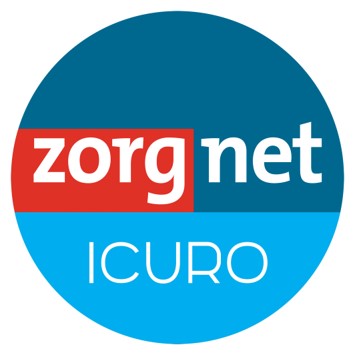 Zorgnet-Icuro has recently joined HOSPEEM as an observer member.
Zorgnet-Icuro has recently joined HOSPEEM as an observer member.
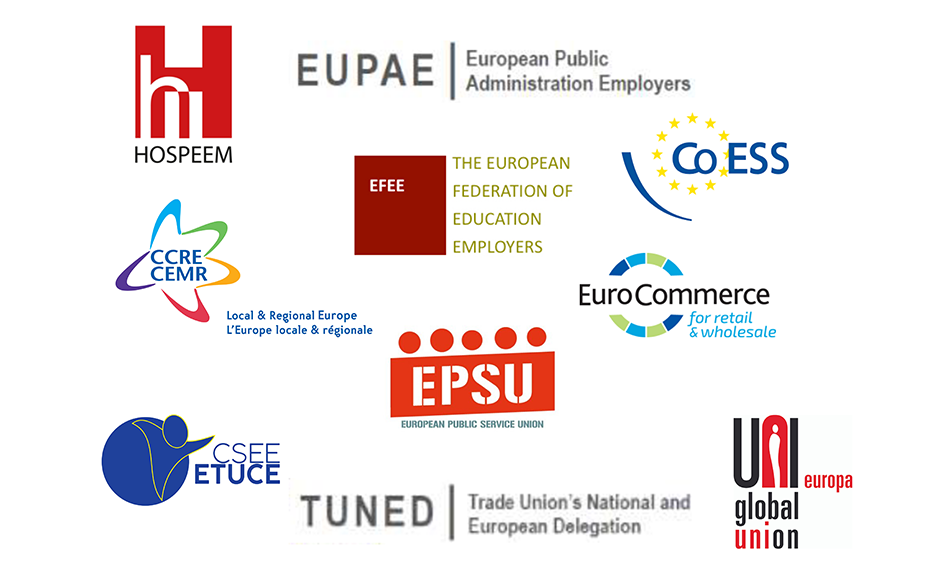
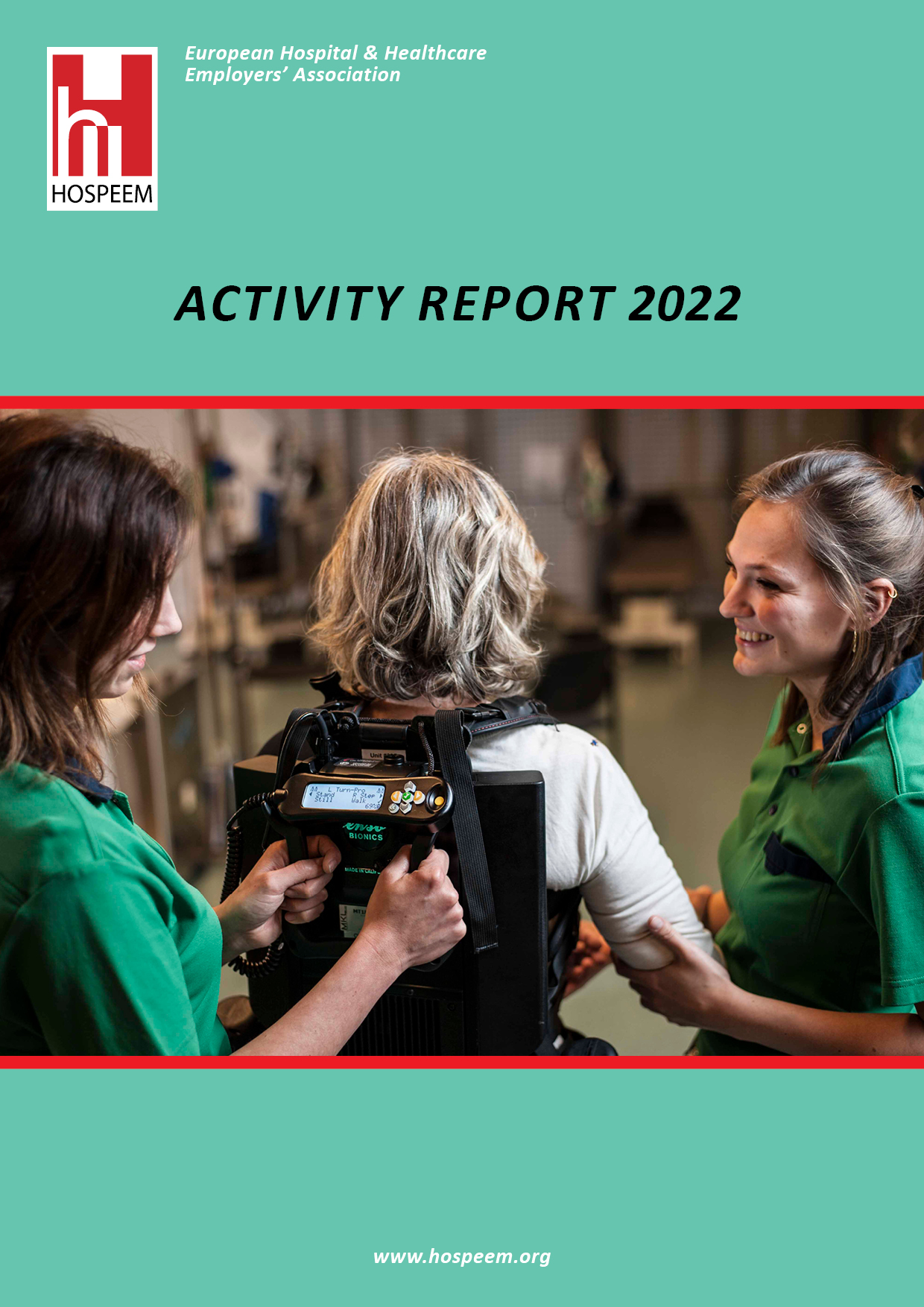
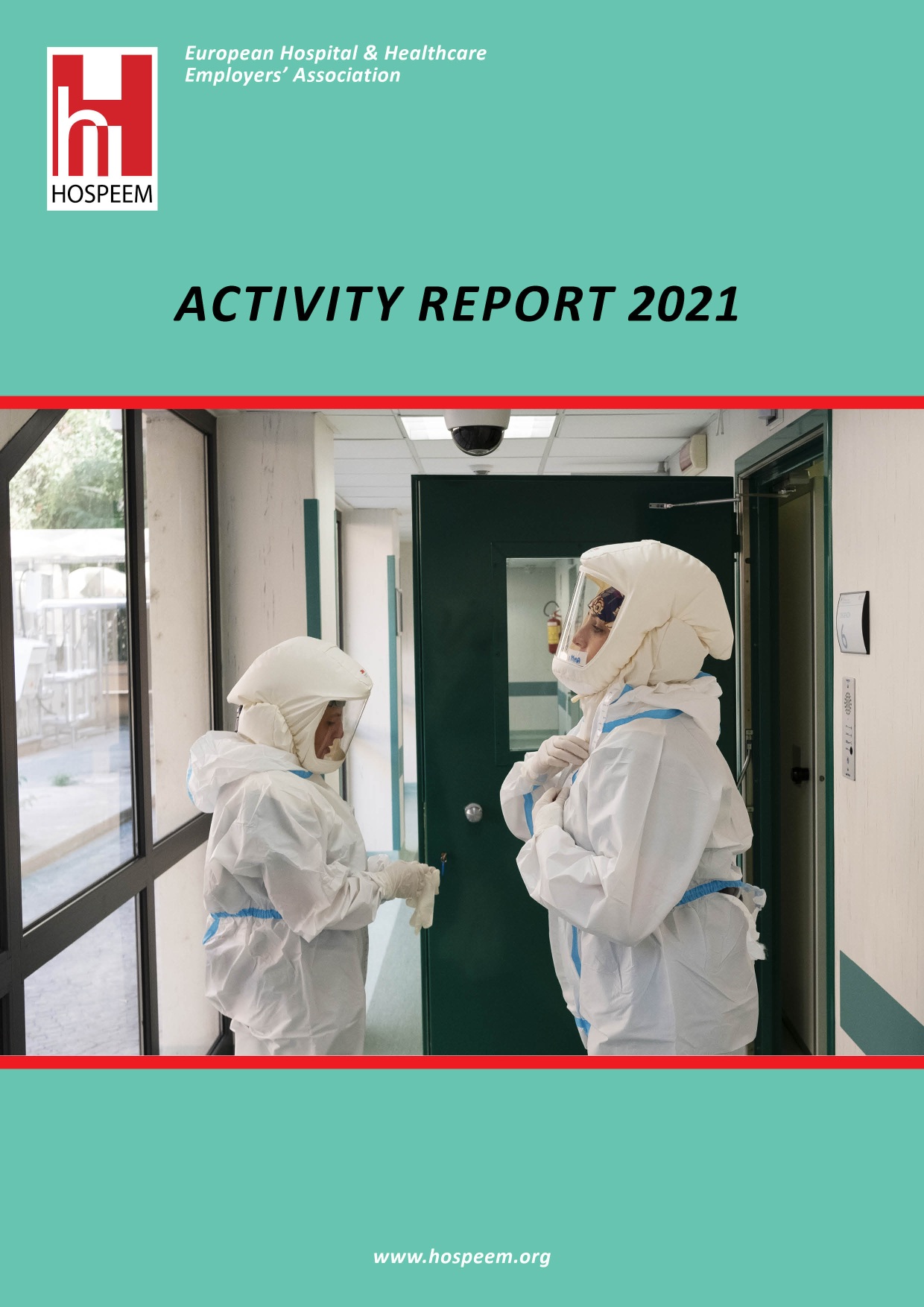
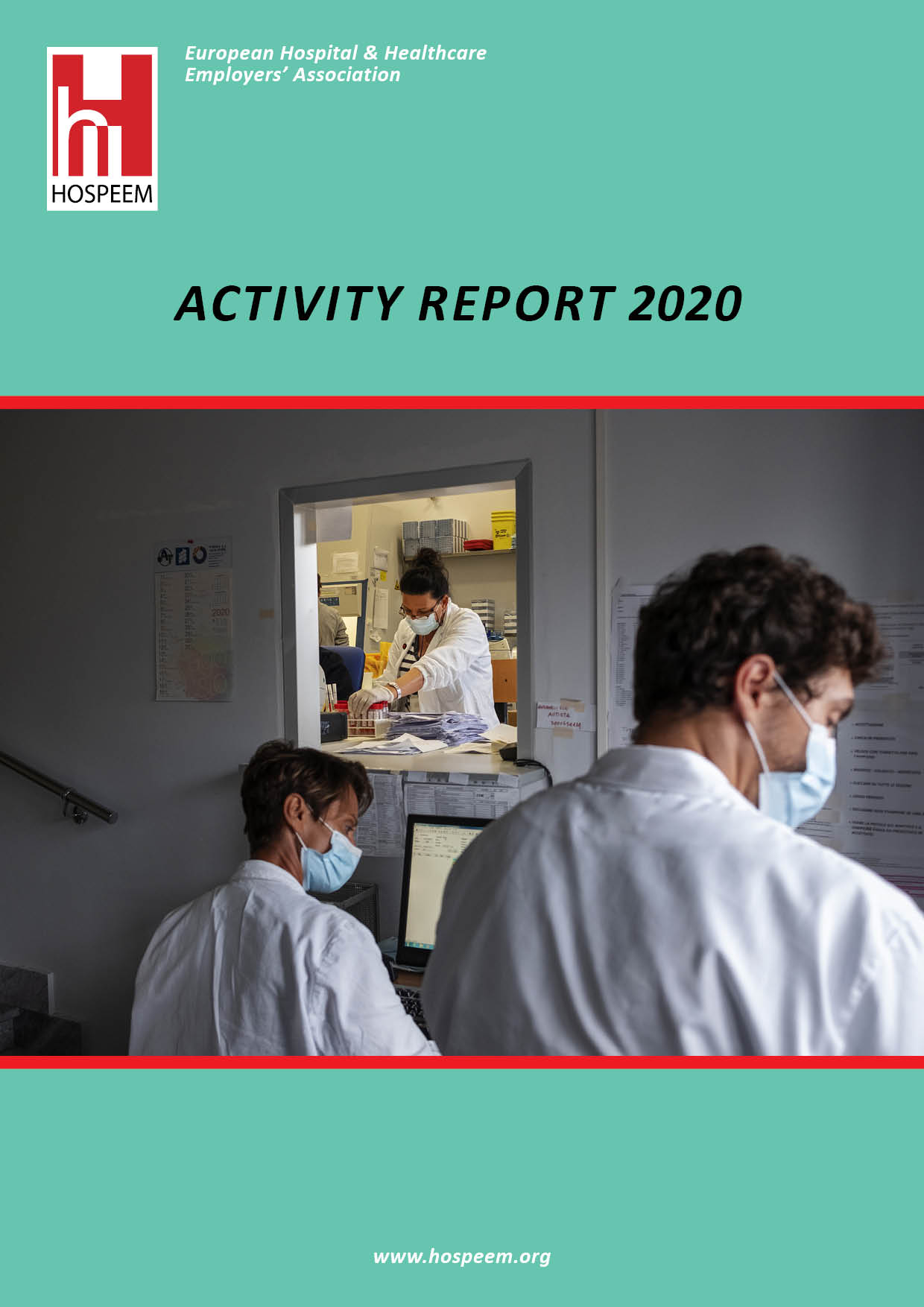
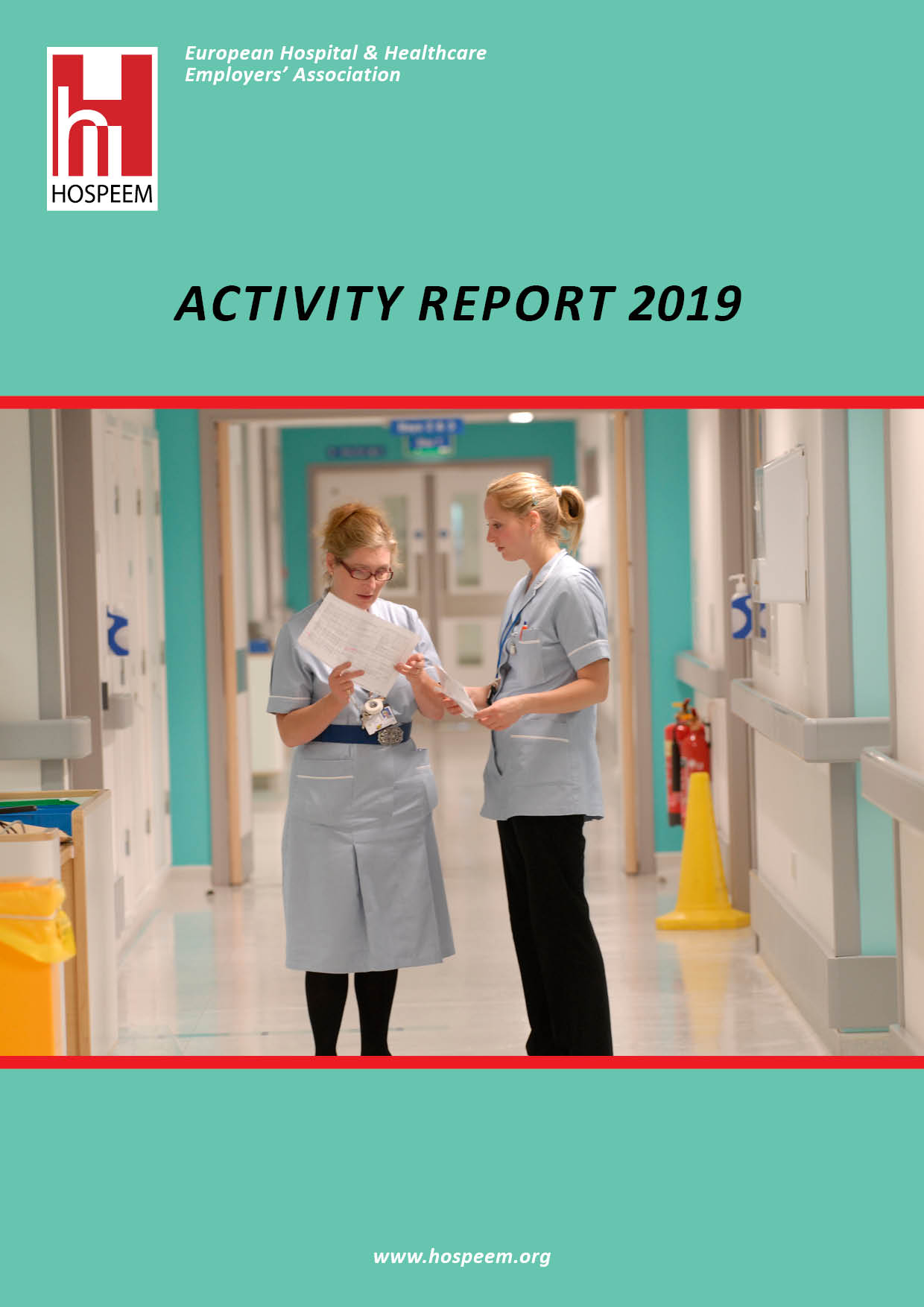
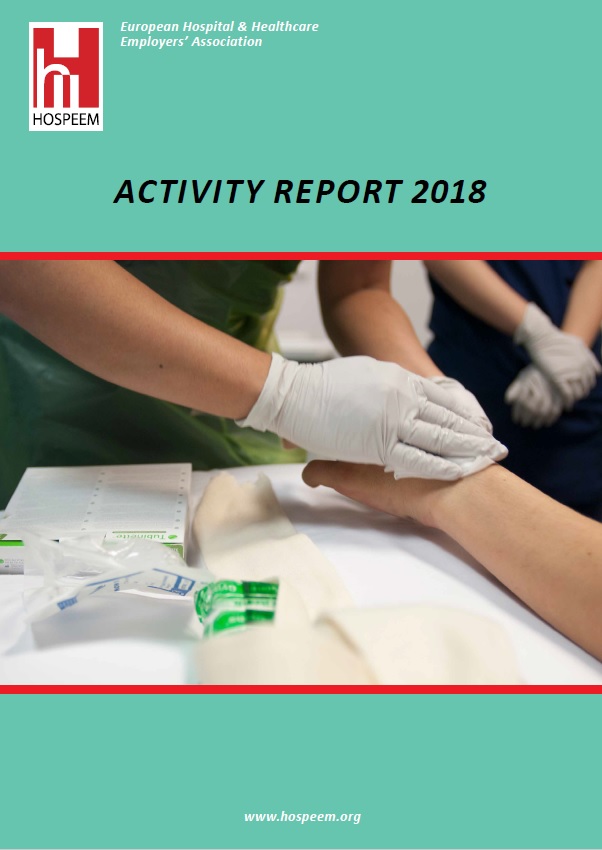
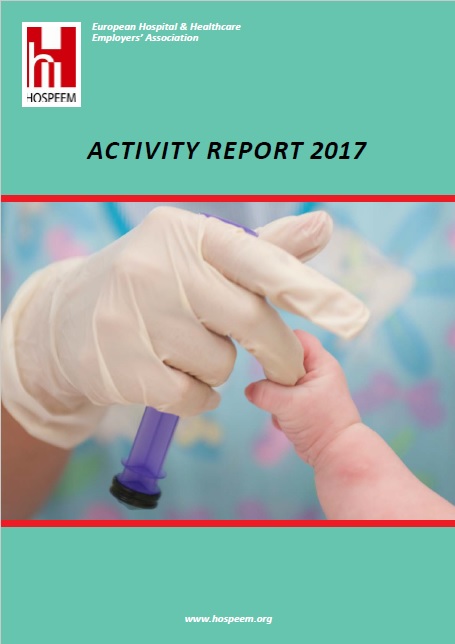
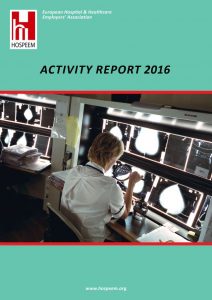
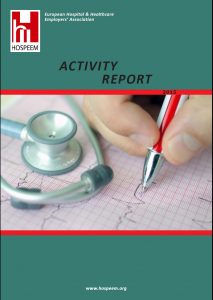
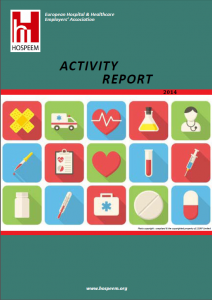
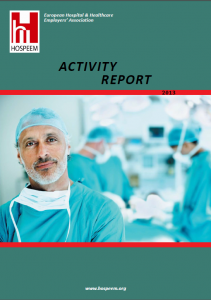
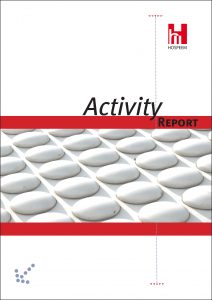
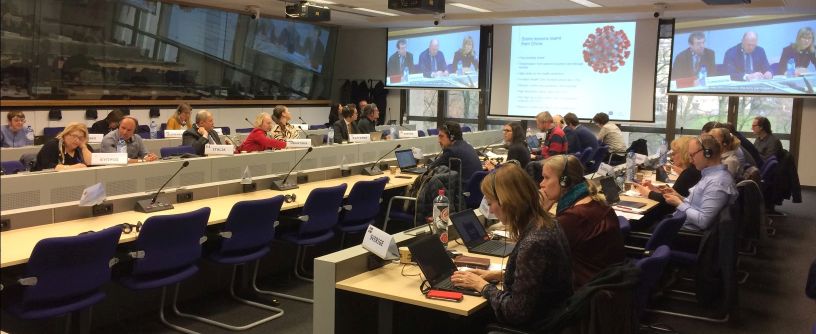
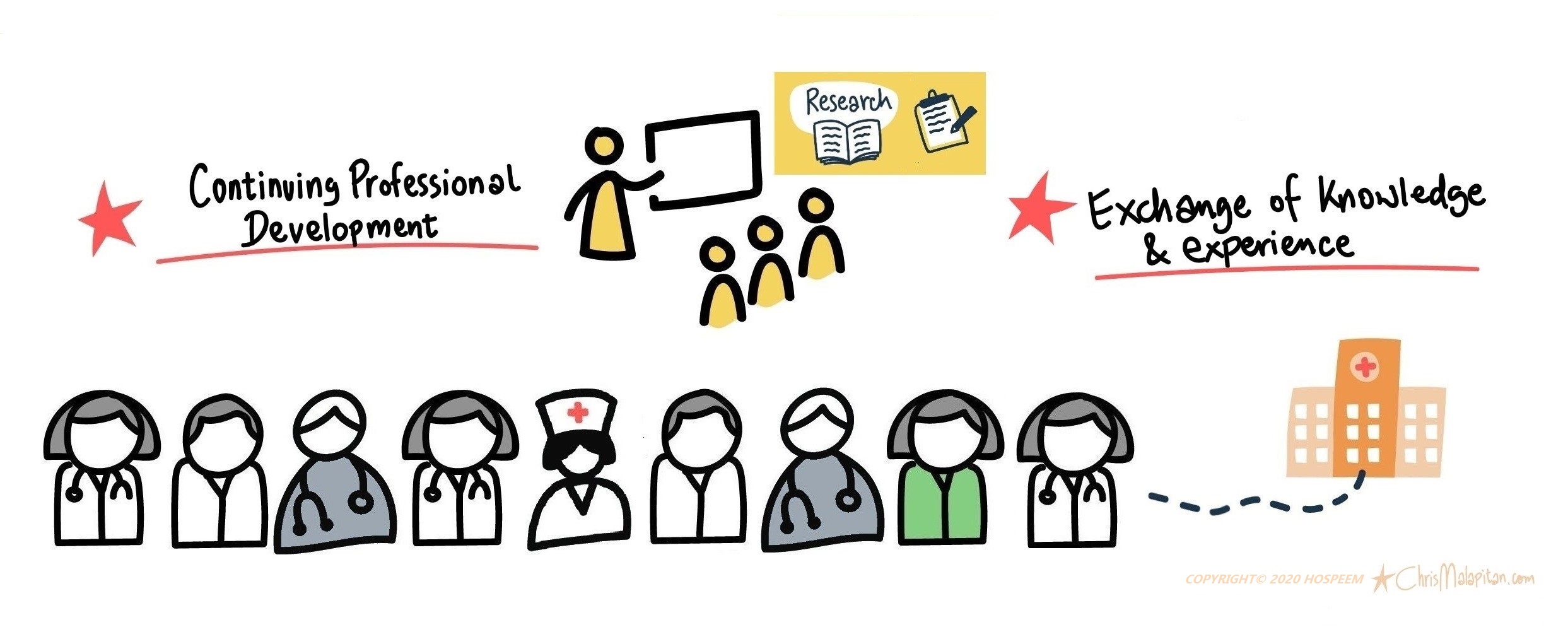
 Like in no other sector, the COVID-19 pandemic has a tremendous impact on the provision of health services and care, experienced in hospitals and healthcare facilities around the globe, and particularly in Europe. This is adding to the already existing strains of the healthcare system such as recruitment and retention, the ageing and health and safety at the workplace.
Like in no other sector, the COVID-19 pandemic has a tremendous impact on the provision of health services and care, experienced in hospitals and healthcare facilities around the globe, and particularly in Europe. This is adding to the already existing strains of the healthcare system such as recruitment and retention, the ageing and health and safety at the workplace.
 In this document you can find the highlights of the work of the HOSPEEM-EPSU Sectoral Social Dialogue Committee for the Hospital and Healthcare Sector. In 2019 the Sectoral Social Dialogue Committee for the Hospital and Healthcare Sector
In this document you can find the highlights of the work of the HOSPEEM-EPSU Sectoral Social Dialogue Committee for the Hospital and Healthcare Sector. In 2019 the Sectoral Social Dialogue Committee for the Hospital and Healthcare Sector
Recent Comments